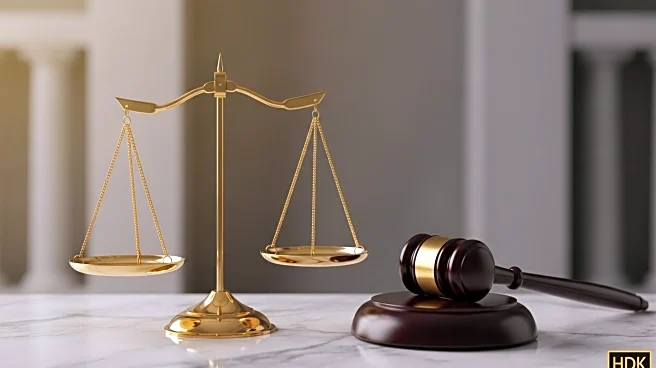What's Happening?
The Trump administration has petitioned the Supreme Court to overturn a lower court ruling that deemed most of President Trump's tariffs illegal. The administration argues that the president possesses the authority to impose import taxes under federal law, specifically citing the International Emergency Economic Powers Act (IEEPA) of 1977. This legal move follows a decision by the U.S. Court of Appeals for the Federal Circuit, which found that the tariffs were an overreach of presidential power. The tariffs in question were initially justified by President Trump as necessary under a national emergency declaration and have been applied to imports from countries including Canada, China, and Mexico. The administration is seeking a swift resolution from the Supreme Court, emphasizing the potential impact on ongoing international trade negotiations.
Why It's Important?
The outcome of this legal battle holds significant implications for U.S. trade policy and economic relations. If the Supreme Court upholds the lower court's decision, the U.S. government may be required to refund billions in collected tariffs, which could strain the U.S. Treasury. Additionally, the tariffs have been a central tool in President Trump's trade strategy, used to negotiate new trade agreements with major economic partners like the European Union and Japan. The uncertainty surrounding the legality of these tariffs has also affected small businesses, which have faced increased costs and market instability. A Supreme Court ruling in favor of the administration could reinforce the president's ability to unilaterally impose tariffs, potentially altering the balance of power between the executive and legislative branches regarding trade policy.
What's Next?
The Supreme Court is expected to consider the administration's request for a hearing in early November. The decision will be closely watched by businesses, trade partners, and policymakers, as it could set a precedent for the scope of presidential powers in trade matters. If the court rules in favor of the administration, it may embolden future presidents to use similar emergency powers to influence trade policy. Conversely, a ruling against the administration could lead to increased congressional oversight and a reevaluation of the IEEPA's application in trade matters.









